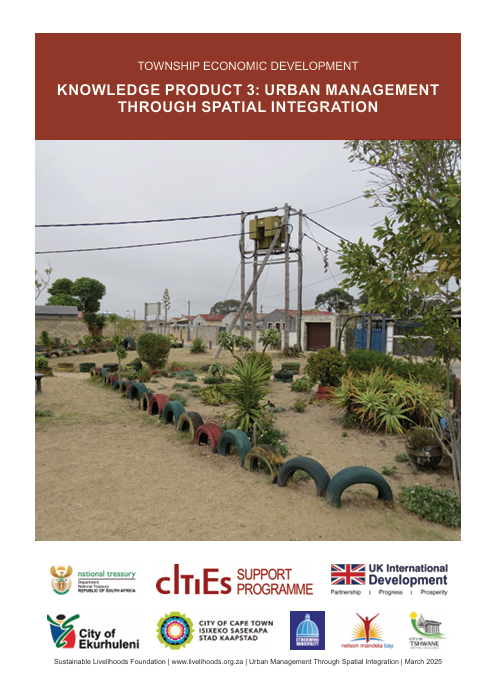The urban management of the public realm in townships presents a major challenge to the governance of cities. In townships, urban spaces tend to be poorly managed, as evident in the decay of public amenities and deterioration of safety. The places that need effective management are diverse and the challenge requires cross-cutting interventions to provide safety, secure access to facilities, manage waste, and stimulate productive social and economic use of public spaces.
This Knowledge Product unpacks these themes through two cases, one in Cape Town and one in Tshwane.
The first case study is oriented around City-owned community facilities and parks in Delft. Park provision is well below the standard requirements for the City of Cape Town, and many of the parks in Delft face a range of pressures, such as informal residential encroachment, vandalism and safety. At the same time, some residents recognise the value of public parks, safeguarding and adopting these spaces to the benefit of the neighbourhood.
The second case investigates a commercial node in Hammanskraal. The node is an important space for business activities, accommodating formal and informal actors with different sized businesses and spatial arrangements. In an unusual situation for a township, the Hammanskraal central business district accommodates commercial activities that serve both surrounding townships and settlements in the broader region of the City of Tshwane.
An important part of these interventions is the requirement for partnerships between the municipality and businesses, underpinned with broad collaboration amongst stakeholders.
This Knowledge Product is set out in three parts.
Part A provides an overview of the case study sites that are included in the knowledge product.
Part B covers the case study of parks and community facilities in Delft.
Part C addresses the case study in Hammanskraal by providing insights into precinct management.

